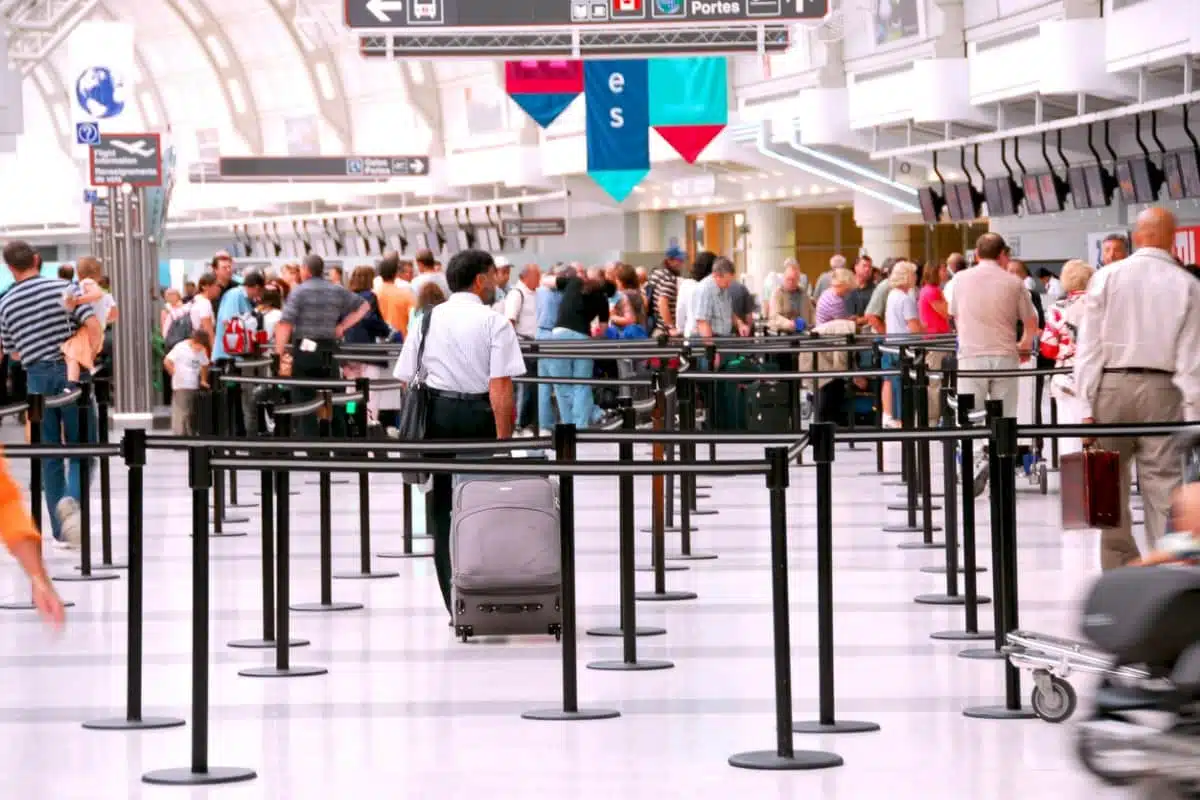Sunwing Airlines is crediting the rejection of a Labour Market Impact Assessment (LMIA) on December 9 as a major factor in widespread disruption to its passengers over the holiday season.
In a recent meeting of the Standing Committee on Transport, Infrastructure and Communities, an airline representative said that they had received over 7,000 complaints from passengers seeking compensation for related expenses and refunds.
The airline cancelled 67 flights between December 15 and 31. This was in part due to uncommonly stormy winter weather, but a lack of staffing also played a significant role.
Passengers from Saskatchewan were particularly hard-hit, as Sunwing cancelled all flights to and from Regina and Saskatoon airports on December 29. The airline did not have enough pilots to service these airports following the rejection of their application to hire foreign workers.
According to Unifor, Canada’s largest private sector union which represents over 16,000 aviation employees, Sunwing intended to hire 63 pilots through the Temporary Foreign Worker Program (TFWP) in October to fly planes through the busy winter season.
The union was emphatically against Sunwing obtaining the necessary positive or neutral result. On October 14, 2022, Unifor sent a letter to the director of Employment and Social Development Canada (ESDC), stating that the union did not believe Sunwing could provide enough proof they exhausted their search to hire workers on a permanent basis who are qualified or capable of becoming qualified. They said Sunwing did not prove there was a shortage of Canadian pilots who could fill the positions or be trained to fill the positions and that the airline did not search hard enough.
What is an LMIA?
An LMIA is a document that a Canadian business or employer must complete as part of an application to hire temporary workers from abroad. The document outlines why a business urgently needs workers, the efforts they have undertaken to hire Canadians or permanent residents instead, and the impact of hiring foreign workers on Canada’s workforce. The employer must prove that there are not enough Canadians or permanent residents with adequate skills, training, or work experience to fill the positions.
This document is sent to ESDC, which decides if bringing in TFWs will have a positive, neutral, or negative impact on Canada’s workforce. If the LMIA is deemed positive or neutral, the business can proceed with hiring foreign workers.
Why was the LMIA rejected?
Advertising requirements
The letter from Unifor says that Sunwing did not meet the eligibility requirements for a positive LMIA due to not following advertising requirements. It says searches of the Canada Job Bank on Oct. 3 and Oct. 6 showed the company was not advertising the available jobs on the Canadian government’s Job Bank.
To be eligible for an LMIA, employers typically need to post the available job on jobbank.ca to be accessible to all Canadians for a minimum of four weeks. They must also be able to prove that they have used at least two other recruitment methods. Some employers are exempt from the advertising requirement altogether.
Union says no lack of qualified pilots in Canada
Additionally, Unifor said that Sunwing was attempting to hire pilots through the TFWP because of a manufactured labour shortage. The union stated that over the pandemic, pilots had their monthly flying time reduced and it has not yet been brought back to pre-pandemic levels.
It also said it was unlikely that there was a lack of pilots capable of fulfilling the necessary job requirements, only that there were those who would require additional training, which should not have been an impediment.
Rate of pay for TFWs would have been higher than unionized pilots
Unifor argued that Sunwing was going to pay the TFWs a higher rate than Canadian pilots under their collective agreement. They said the advertisement obtained through SmartWings showed that captains would be offered $9,500 USD per month fixed plus $5,000 USD per month cash. That is more money than the highest-paid captains make under the union’s collective agreement despite requiring less experience.
In addition, when it comes to unionized positions using the TWFP, an employer must:
- Advertise and offer the same wage rates as those established under the Collective Agreement.
- Offer the TFWs the same terms and conditions as Canadian and permanent resident workers.
- Recommend that employers work actively with union representatives to recruit Canadians and permanent residents.
Sunwing refuted the union’s claims that the airline wanted to hire TFWs as a less expensive alternative to domestic pilots.
“Assertions being made by Unifor Local 7378 that Sunwing Airlines’ plans to hire seasonal foreign pilots as a `cheaper alternative’ to hiring Canadian pilots is categorically untrue,” Len Corrado, president of Sunwing, told The Canadian Press in November.
Sunwing typically reduces service over warmer months because it is an airline and tour group company that specializes in southern destinations and there is less demand in the summer. Corrado said hiring pilots as TFWs in the lead-up to the holidays would allow the airline to have adequate staffing over the winter season.

